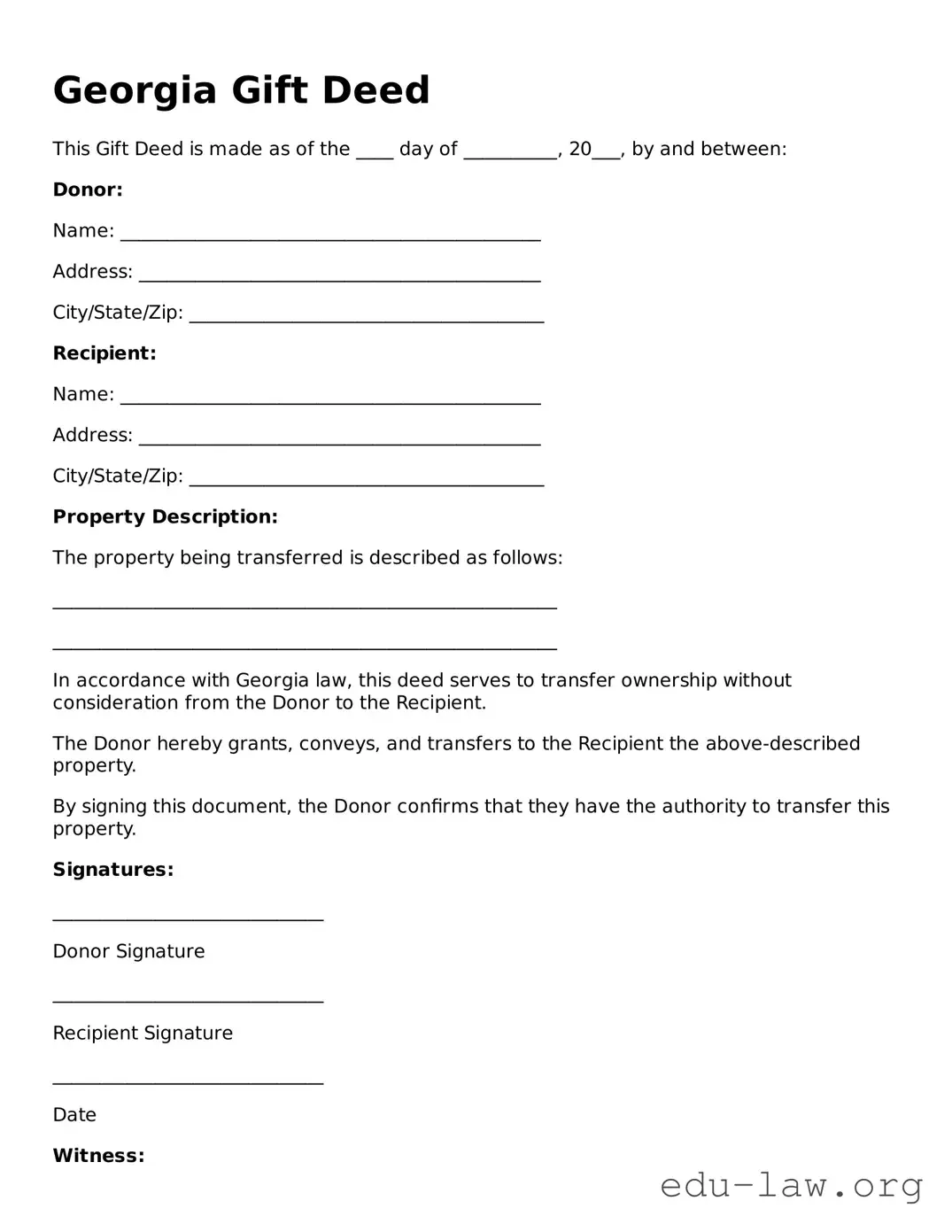Georgia Gift Deed
This Gift Deed is made as of the ____ day of __________, 20___, by and between:
Donor:
Name: _____________________________________________
Address: ___________________________________________
City/State/Zip: ______________________________________
Recipient:
Name: _____________________________________________
Address: ___________________________________________
City/State/Zip: ______________________________________
Property Description:
The property being transferred is described as follows:
______________________________________________________
______________________________________________________
In accordance with Georgia law, this deed serves to transfer ownership without consideration from the Donor to the Recipient.
The Donor hereby grants, conveys, and transfers to the Recipient the above-described property.
By signing this document, the Donor confirms that they have the authority to transfer this property.
Signatures:
_____________________________
Donor Signature
_____________________________
Recipient Signature
_____________________________
Date
Witness:
Name: _____________________________________________
Address: ___________________________________________
City/State/Zip: ______________________________________
_____________________________
Witness Signature
Notary Public:
State of Georgia
County of ___________________________
On this ____ day of __________, 20___, before me, a Notary Public, personally appeared the Donor and Recipient, known to me to be the persons whose names are subscribed to this instrument and acknowledged that they executed the same for the purposes therein contained.
In witness whereof, I have hereunto set my hand and official seal.
_____________________________
Notary Public
My Commission Expires: _____________________________
